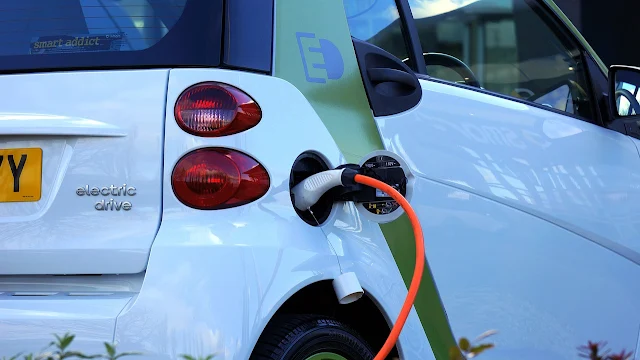OJK Requests Lower Electric Car Insurance Rates
The Chief Executive of the Supervision of Insurance, Underwriting, and Pension Funds of the Financial Services Authority (OJK), Ogi Prastomiyono, announced that the OJK has issued a letter to industry players, urging insurance companies to offer lower rates for electric car insurance. This move aims to support the government's policies regarding electric vehicles.
During a Press Conference of the Monthly Board of Commissioners Meeting (RDKB), Ogi stated, "In order to promote the government's electric car policy, the OJK has communicated with industry players. Essentially, the OJK is providing insurance companies with the opportunity to charge lower or differentiated rates for electric car insurance."
Consequently, the rates charged for electric car insurance will be lower than those specified in the Financial Services Authority Circular Letter Number 6/SEOJK.05/2017, which outlines the premium rates or contributions for property insurance and motor vehicle insurance in 2017 (SEOJK 6/2017). This regulation establishes the minimum and maximum limits for vehicle insurance rates.
Ogi explained, "Insurance companies are allowed to set premium or contribution rates below the lower limit defined in OJK Circular Letter Number 6 of 2017. This provision is valid until December 31, 2023. Therefore, the current regulations for electric car insurance still refer to the previous provisions."
Furthermore, the OJK is currently in the process of drafting regulations to increase capital and equity in the insurance industry. The capital increase policy aims to enhance the industry's structure, resilience, competitiveness, and economic scale. These policies are also necessary to help companies tackle the challenges posed by technology-based insurance products and services.
"By increasing equity, insurance companies will have a larger buffer to absorb risks associated with investment activities and asset management. This ensures that companies have sufficient capital to meet their payment obligations to policyholders. Industry players recognize the importance of strengthening capital and equity in the insurance sector," stated Ogi.
Ogi mentioned that the OJK has conducted meetings with three insurance sector associations, namely the Indonesian Life Insurance Association (AAJI), the Indonesian General Insurance Association (AAUI), and the Indonesian Sharia Insurance Association (AASI), to reinforce these policies.
In a separate statement, Bern Dwyanto, the Executive Director of AAUI, highlighted that electric vehicles pose slightly different risks compared to conventional vehicles. Therefore, special considerations need to be given to protection and pricing.
"To support the electric vehicle program, AAUI believes it is necessary to conduct a study on the risks associated with Battery-Based Electric Motorized Vehicles (KBLBB) since this represents a new type of risk," explained Bern.
The Government of Indonesia has been actively promoting the development of the electric vehicle ecosystem through various policies, including discounts on electric vehicle purchases and tax incentives for investors.
The government aims to have 1 million or more four-wheeled electric vehicles and 3.22 million two-wheeled electric vehicles in use by 2035. With these targets, the government estimates that it can save 12.5 million barrels of fuel oil (BBM) and reduce 4.6 million tons of carbon dioxide (CO2) emissions from four-wheeled vehicles.

Post a Comment